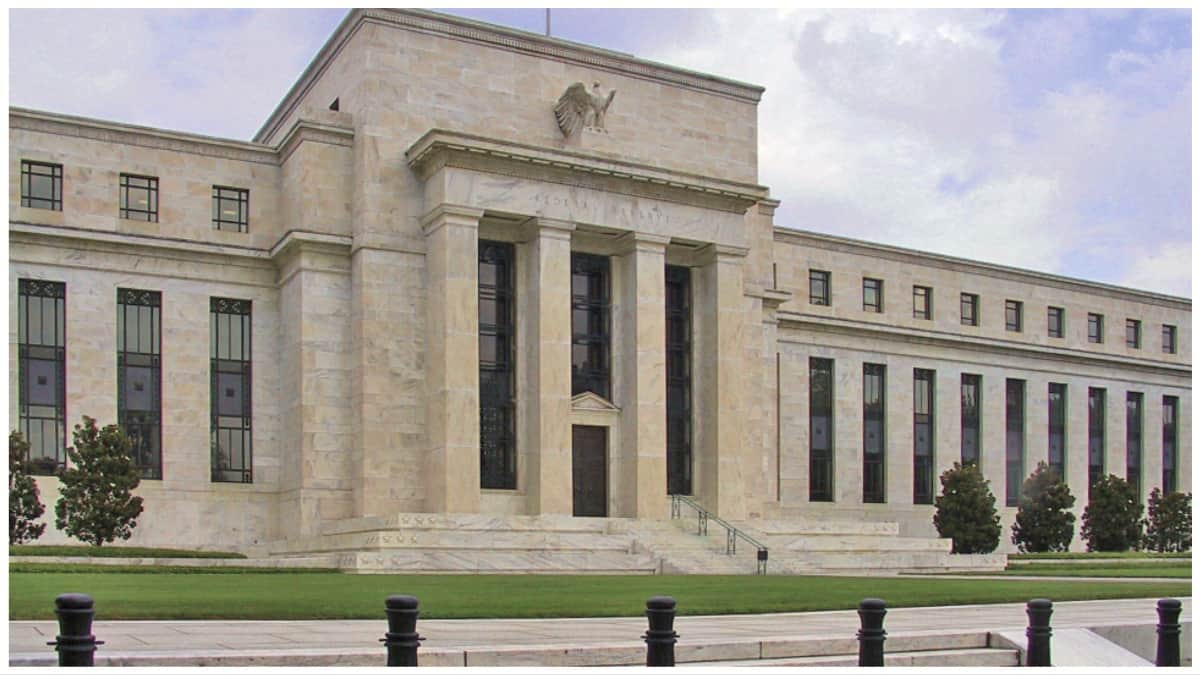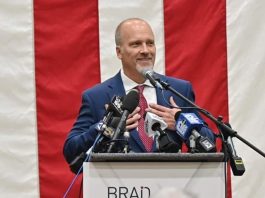On Wednesday March 19th, the Fed said it was keeping interest rates high, but more importantly, the Fed also announced that it is going to let $5 billion per month of treasury bonds mature rather than the prior rate of $25 billion. What does that mean?
Let’s see if I have this right. Before they were letting $25 billion a month mature, which means that the Fed was not refinancing $25 billion a month – which means not reissuing those bonds.
This is confusing so let me see if I can break down to farmer math. When the Fed reissues bonds that come due, that means it puts bonds out in the market, which means taking cash into the Fed to hold. That also means that by taking cash into the Fed, the Fed is reducing the money supply, because it’s taking cash out of the market.
Let’s see if we have this right. If the Fed refinanced $25 billion a month (“letting the bonds mature”) that would mean issuing new bonds to replace the old, which in turn means taking the cash into the Fed, rather than letting that cash remain in the market.
Now comes the hard part. By refinancing less, $5 billion instead of $25 billion, it means that the Fed is going to refinance $20 billion ($25 b – $5 b = $20 b) a month. That’s a shift of $20 b x 12 months = $240 billion that the Fed is going to now refi, which means issuing new bonds, which means vacuuming that cash up into the Fed to hold rather than it being out in the market.
Effectively, the Fed is now reducing the money supply. Why? Less cash in the market place means less cash for the private sector – for financing new projects, new manufacturing plants, finance growth and the like. (Of course, the Fed doesn’t remind Americans that it is issuing $1.8 trillion in new bonds to vacuum up cash from the market, just to cover the interest on the national debt this year.)
So now I ask you, why is the Fed doing this? Good question. They’re keeping interest rates high and now they are reducing the money supply. Hmm, funny thing, they didn’t do that during Biden’s spending binge, but now while Trump is trying to cut government spending and increase tariffs to increase revenue to the government and reduce foreign tariffs on American goods, the Fed is now deliberately operating in opposition to the Trump administration’s goals.
Tightening the money supply could cause a recession. It is $240 billion a year after all. Another problem I have with the Fed is that it is trying to predict the economy over the next year and then change its monetary policy to try to influence the economy. That’s NOT the Fed’s job.
The Fed’s job is to provide a stable money supply and stable interest rates. It’s job is not to control or manage the economy.
All their actions contributed to the massive national debt of $37 trillion during Biden, but now they operate contrary to Trump who is trying to clean up this mess. I really have to question their motives. If anything the Fed should be putting more cash out there into the market – and continue to reduce the amount of Fed owned bonds on its balance sheet.
And the backwards talk – how they talk about only letting $5 b a month to mature instead of $20b, rather than just telling us straight up what they are really doing – i.e. just say it – the Fed is going to reduce the money supply by issuing more bonds rather than paying them off.
Very suspicious.
Wisconsin Right Now is a news organization focused on covering the news from a conservative point of view, in particular on politics and policy issues through analysis and opinions, and is protected by the first amendment of the United States constitution. WRN does not make endorsements of candidates or direct readers to vote for or against any candidate or issue. On October 18 and November 23, 2023 Donald Trump tweeted out on Trump’s Truth Social account T. Wall’s October 6th column on Trump’s property valuations. T. Wall has appeared on Fox News, Jesse Waters Show on Fox, Newsmax, CBS, NBC, Spectrum News 1, USA Today, X.com, YouTube, and numerous Madison and Milwaukee news programs and local newspapers (Wisconsin State Journal, Capital Times, Middleton Review, Middleton Times Tribune, and Milwaukee Journal Sentinel and a dozen other Wisconsin papers) and previously wrote a column for InBusiness magazine and the Middleton Times Tribune for five years each. T. Wall holds a degree from the UW in economics and an M.S. in real estate analysis and valuation and his full time career is as a real estate developer. Disclaimer: The opinions of the writer are not necessarily those of this publication or the left!


![WATCH: Elon Musk Town Hall Rally in Green Bay [FULL Video]](https://www.wisconsinrightnow.com/wp-content/uploads/2022/04/Elon_Musk_3018710552-265x198.jpg)



![The Great American Company [Up Against the Wall]](https://www.wisconsinrightnow.com/wp-content/uploads/2025/03/MixCollage-29-Mar-2025-09-08-PM-4504-265x198.jpg)
![The Wisconsin DOJ’s ‘Unlawful’ Lawman [WRN Voices] josh kaul](https://www.wisconsinrightnow.com/wp-content/uploads/2025/03/MixCollage-29-Mar-2025-08-48-PM-2468-265x198.jpg)



![Judges vs. Trump [Up Against the Wall] Frederick Walls Trump Holds Cash Special Counsel Jack Smith Iowa Victory for Trump Remove Trump From Primary Ballot](https://www.wisconsinrightnow.com/wp-content/uploads/2023/11/trump-case-dismissed-265x198.jpg)
